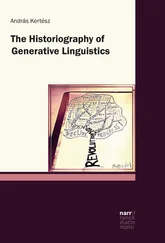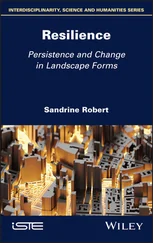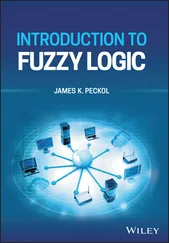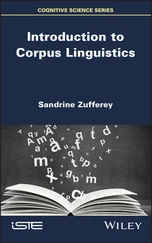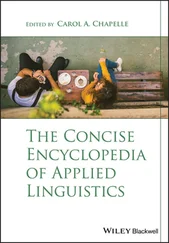Sandrine Zufferey - Introduction to Experimental Linguistics
Здесь есть возможность читать онлайн «Sandrine Zufferey - Introduction to Experimental Linguistics» — ознакомительный отрывок электронной книги совершенно бесплатно, а после прочтения отрывка купить полную версию. В некоторых случаях можно слушать аудио, скачать через торрент в формате fb2 и присутствует краткое содержание. Жанр: unrecognised, на английском языке. Описание произведения, (предисловие) а так же отзывы посетителей доступны на портале библиотеки ЛибКат.
- Название:Introduction to Experimental Linguistics
- Автор:
- Жанр:
- Год:неизвестен
- ISBN:нет данных
- Рейтинг книги:4 / 5. Голосов: 1
-
Избранное:Добавить в избранное
- Отзывы:
-
Ваша оценка:
- 80
- 1
- 2
- 3
- 4
- 5
Introduction to Experimental Linguistics: краткое содержание, описание и аннотация
Предлагаем к чтению аннотацию, описание, краткое содержание или предисловие (зависит от того, что написал сам автор книги «Introduction to Experimental Linguistics»). Если вы не нашли необходимую информацию о книге — напишите в комментариях, мы постараемся отыскать её.
Introduction to Experimental Linguistics — читать онлайн ознакомительный отрывок
Ниже представлен текст книги, разбитый по страницам. Система сохранения места последней прочитанной страницы, позволяет с удобством читать онлайн бесплатно книгу «Introduction to Experimental Linguistics», без необходимости каждый раз заново искать на чём Вы остановились. Поставьте закладку, и сможете в любой момент перейти на страницу, на которой закончили чтение.
Интервал:
Закладка:
Finally, Chapter 7offers an introduction to the analysis of quantitative data, aiming to summarize the key elements for understanding descriptive and inferential statistics, as found in the scientific literature devoted to experimental linguistics. This chapter will also emphasize the peculiarities of the data acquired through linguistic experiments, namely the interdependence of observations. Then, we will introduce mixed linear models that can be used to analyze such types of data.
Christelle GILLIOZ
Sandrine ZUFFEREY
August 2020
1
Experimental Linguistics: General Principles
We start this chapter by outlining the foundations of the experimental methodology and its main features. Then, we discuss the advantages and disadvantages of this type of methodology, as well as the main arguments in favor of its use in the field of linguistics. Last, we present a series of resources offering access to research in experimental linguistics.
1.1. The scientific process
The experimental methodology in linguistics is part of a scientific approach for studying language. It aims to observe language facts from an objective and quantitative point of view. The general idea behind this approach is that it is impossible to rely on one’s own intuitions in order to understand the world. Quite the contrary, it is necessary to observe objective data reflecting reality. For example, by simply observing the world around us, and relying solely on our own intuition, we might believe that the Earth is flat. This is why the scientific approach, used in fields such as psychology or physics, is based on specific principles and stages, instead of relying on the intuition of scientists. Let us briefly go through these stages:
The first stage in the scientific process involves the observation of concrete phenomena and the subsequent generalization of observations, in order to build a scientific fact: a fact which does not depend on a specific place, time, object or person . At this first stage, it is also possible to trace certain regularities concerning the emergence of a phenomenon, and to try to define the conditions in which such phenomenon generally appears. So, let us illustrate this process by reviewing the stages involved in the discovery of gravitation. This finding is usually attributed to Isaac Newton, who is said to have had a revelation after seeing several apples fall from a tree. As he watched the apples fall, Newton wondered why the apples always fell in a perpendicular direction from the apple tree to the ground, never to the side or upwards.
During the second stage, all of the scientific facts concerning the same phenomenon may prompt the development of a law or theory aimed at explaining such facts. A theory synthesizes knowledge about a phenomenon at a given moment and is therefore provisional, insofar as it can evolve according to new knowledge. We should make it clear that the notion of theory in science is rather distant from the meaning of the word theory as we use it in everyday language. While this word can be used to refer to personal ideas or reasoning mechanisms, its use in the scientific field only applies to coherent and well-established principles or explanations. Going back to our example, in Newton’s time, two models coexisted for describing the movement of bodies: one followed Galileo’s law and was devoted to terrestrial bodies, whereas the other was oriented by Kepler’s law and made reference to celestial bodies. On the basis of this knowledge and his own observations, Newton suggested the existence of a force which made objects attract one another and which could explain the movements of both celestial and terrestrial bodies.
At the third stage, a theory is capable of predicting the emergence of observable facts, or to put it differently, to formulate precise hypotheses which can be put to the test. In order to test these hypotheses, it is necessary to collect a large amount of data and check whether they support the initial theory. In this way, it is possible to know to what extent we can rely on our theory. The more the predictions made on the basis of the theory are fulfilled, that is, the more the data collected corresponds to what might be expected according to the theory, the higher the confidence level will be. Otherwise, if the predictions did not come true, the theory should be put into question and re-examined. Newton’s law of universal gravitation has made it possible to predict and explain the movement of the tides thanks to the moon’s gravitational pull on the Earth, the elliptical movement of celestial bodies or the equatorial bulge.
In summary, the scientific approach is a circular and dynamic process, originating in the reality of the facts, abstracting itself from them in an attempt to explain them, and then approaching them again to check the validity of the explanation.
1.1.1. Qualitative and quantitative approaches
It is possible to investigate a research question in different ways and from different perspectives. Let us imagine that you wish to study second language acquisition within the context of linguistic immersion. The first way of doing this could be to contact students attending your university for a language stay and to interview them. These interviews can later be viewed to analyze the opinions of students regarding their experience during their stay, their feelings on its advantages and disadvantages, or their opinion on the impact of such a stay on their linguistic competences. By doing this, you would be carrying out what is called qualitative research.
The qualitative approach helps us to explore and understand a phenomenon by studying it in detail and trying to take hold of it in a holistic manner, based on the meanings that people assign to the phenomenon. This type of research takes a long time when conducting interviews and interpreting the results; hence, only a small number of individuals can be questioned. Due to this characteristic, the results of a qualitative study are strongly anchored to the context in which the study was carried out, and cannot be generalized to other people or to other contexts. This is not a problem insofar, as qualitative studies do not aim to make such a generalization. The subjectivity of the individuals involved in the study is acknowledged as an integral part of qualitative research. This methodology is built on the principles of a constructivist vision of knowledge, according to which there is not only one, but many realities construed by people’s interpretations and the meanings they attribute to events or things, on the basis of their own experience.
When reading this first proposal for investigating second language acquisition within a context of linguistic immersion, you might think that although it may be interesting to know learners’ opinions about their experience in a language stay, you also desire to know more about the benefits of such a stay on the evolution of their linguistic competences. The conclusions drawn based on the opinions of a few interviewees may not reflect the reality of all learners. It is possible that the interviewees could subjectively overestimate or underestimate the evolution of their skills, or that these particular cases do not mirror the typical experience learners have during a language stay. One possibility, to obtain more objective data on the advantages of a language stay for improving linguistic competences, could be to take into account the experience of more people and to measure their linguistic competences at the start and end of the stay, for example, with an assessment test. By comparing the results before and after the stay with the help of a statistical test , you could determine whether the students’ linguistic skills have evolved and in what aspect. If you chose this second option, your research would follow a quantitative methodology, in the sense that your conclusions would be drawn from the analysis of numerical data pertaining to a large number of people, and objectively assessed through a test. Your results would depend little on the respondents, their subjective perceptions or your interpretation of their declarations. If learners have really benefited from their language stay, this should be reflected in their results to the test, probably higher at the end than at the beginning of the stay, and this is what you would measure directly.
Читать дальшеИнтервал:
Закладка:
Похожие книги на «Introduction to Experimental Linguistics»
Представляем Вашему вниманию похожие книги на «Introduction to Experimental Linguistics» списком для выбора. Мы отобрали схожую по названию и смыслу литературу в надежде предоставить читателям больше вариантов отыскать новые, интересные, ещё непрочитанные произведения.
Обсуждение, отзывы о книге «Introduction to Experimental Linguistics» и просто собственные мнения читателей. Оставьте ваши комментарии, напишите, что Вы думаете о произведении, его смысле или главных героях. Укажите что конкретно понравилось, а что нет, и почему Вы так считаете.
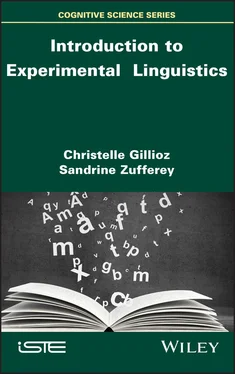
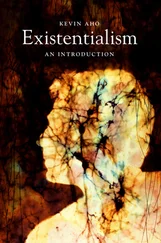

![Andrew Radford - Linguistics An Introduction [Second Edition]](/books/397851/andrew-radford-linguistics-an-introduction-second-thumb.webp)

